Academic Success
Applying Learning Theory
in the Classroom
ROWMAN & LITTLEFIELD EDUCATION
A division of
ROWMAN & LITTLEFIELD PUBLISHERS, INC.
Lanham New York Toronto Plymouth, UK
Published by Rowman & Littlefield Education
A division of Rowman & Littlefield Publishers, Inc.
A wholly owned subsidiary of The Rowman & Littlefield Publishing Group, Inc.
4501 Forbes Boulevard, Suite 200, Lanham, Maryland 20706
www.rowman.com
10 Thornbury Road, Plymouth PL6 7PP, United Kingdom
Copyright 2013 by Marie Menna Pagliaro
All rights reserved. No part of this book may be reproduced in any form or by any electronic or mechanical means, including information storage and retrieval systems, without written permission from the publisher, except by a reviewer who may quote passages in a review.
British Library Cataloguing in Publication Information Available
Library of Congress Cataloging-in-Publication Data
Pagliaro, Marie Menna, 1934
Academic success : applying learning theory in the classroom / Marie Menna Pagliaro.
p. cm.
Includes bibliographical references.
ISBN 978-1-4758-0569-7 (cloth : alk. paper) -- ISBN 978-1-4758-0570-3 (pbk. : alk. paper) -- ISBN 978-1-4758-0571-0 (electronic)
1. Learning, Psychology of. 2. Cognitive learning. 3. Motivation in education. 4. Academic achievement. I. Title.
LB1060.P34 2014
370.15'23--dc23
2013024630
 The paper used in this publication meets the minimum requirements of American National Standard for Information Sciences Permanence of Paper for Printed Library Materials, ANSI/NISO Z39.48-1992.
The paper used in this publication meets the minimum requirements of American National Standard for Information Sciences Permanence of Paper for Printed Library Materials, ANSI/NISO Z39.48-1992.
Printed in the United States of America
Also by Marie Menna Pagliaro
Mastery Teaching Skills: A Resource for Implementing the Common Core State Standards
(Rowman & Littlefield, 2012)
Research-Based Unit and Lesson Planning: Maximizing Student Achievement
(Rowman & Littlefield, 2012)
Exemplary Classroom Questioning: Practices To Promote Thinking and Learning
(Rowman & Littlefield, 2011)
Educator or Bully? Managing the 21st Century Classroom
(Rowman & Littlefield, 2011)
Differentiating Instruction: Matching Strategies with Objectives
(Rowman & Littlefield, 2011)
If your principal accused you of being a highly effective teacher, would there be enough evidence to convict you?
Preface
There is no question that teacher effectiveness is the most significant factor affecting student achievement. The positive results of teacher effectiveness have been documented consistently over the past 25 years, beginning with a study led by William Sanders, a statistician at the University of Tennessee, and reported by Sanders and Rivers (1996).
In 1992, the state of Tennessee commissioned Dr. Sanders to analyze the teaching performance of its 30,000 teachers and the records of its 6 million students. In an interview conducted with Marks (2000), Dr. Sanders explained how he and his team examined class size; school location (rural, urban, suburban); ethnicity; students heterogeneously and homogeneously grouped; amount of expenditure per pupil; and percentage of students eligible for free lunch. Much to his surprise, he discovered that teacher effectiveness is 10 to 20 times as significant as any of these other factors. He was able to quantify just how much teachers matter and demonstrate that a bad teacher can deter the progress of a child for at least four years.
Wright, Horn, and Sanders (1997), in a subsequent study involving 60,000 students, came to the same conclusions. As a result, they recommended that the best way to improve education is to improve teacher effectiveness.
Sanders and his colleagues were not the only researchers to emphasize the importance of the teachers performance on student achievement. The National Commission on Teaching and Americas Future (NCTAF) (1996) issued its influential report which indicated that what teachers know and can do is the most important influence on student learning. Haycock (1998), working in Boston and Dallas, reported similar findings, with effective teachers having a profound influence. Pipho (1998) documented that the effectiveness of the individual classroom teacher was the single largest factor affecting student growth, with prior achievement, heterogeneity, and class size paling in comparison with teacher performance. After studying in-service training and district innovations, Joyce and Showers (2002) determined that the key to the growth of students is the growth of teachers.
A study by Felch, Song, and Poindexter (2010) indicated that despite increasing school safety, requiring uniforms, changing the curriculum, offering after-school programs, reducing class size, and increasing a lot more spending per pupil, the only progress that came in a chronically underperforming middle school was bringing in effective teachers.
Hanushek (2011), in his own analysis, concluded that an effective teacher, which he defines as one in the top 15 percent for performance based on student achievement, can in one year take an average student from the 50th to the 58th percentile or above. The implication is that the same student with a teacher in the bottom 15 percent will end up below the 42nd percentile. And when assigned a teacher in the bottom 5 percent, a student in the middle of the distribution could fall to the bottom third by the end of the school year.
Hanusheks research also took into account student backgrounds and initial knowledge, and applies to urban, suburban, and rural schools. He even goes on to calculate the economic impact of effective and ineffective teaching. Hanushek concluded that in asingle year, teachers in the top 15 percent of quality can add at least $20,000 of income throughout a students life. In a class of 20 students, this teacher can add $400,000 yearly to the economy. On the other side of the coin, teachers in the lowest 15 percent can reduce this same amount yearly from the economy.
Economic and academic gains were not the only positive effects of excellent teaching. A study conducted with 2.5 million students over a 20-year period at Columbia and Harvard universities demonstrated that effective teachers also had an effect on increasing college matriculation and reducing teenage pregnancies (Chetty, Friedman, & Rockoff, 2012).
Since the focus in education is currently more on students than on schools, there has now been a corresponding shift to understanding how every student can learn well (Stansbury, 2008). Some questions that arise are: How can teachers ensure that they are effective? What should they do in the classroom that makes the difference between students who learn and those who do not? What should teachers do to keep their students actively and meaningfully engaged? These are the questions discussed in this book.
The best way to develop effective teaching skills is to concentrate on how students learn. To ensure that instruction is as effective and efficient as possible, it is imperative that teachers are thoroughly familiar with the basic learning theories. These principles should be integrated into all aspects of instructional planning and delivery.
Moreover, since teachers are not technicians but professionals, they should not only understand the theory that informs their practice, but more important, know how to apply that theory in the classroom. Then teachers must actually implement what they know and can do.


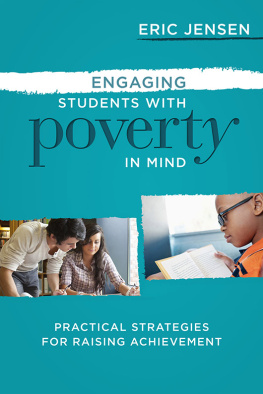
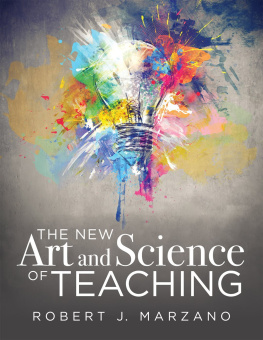
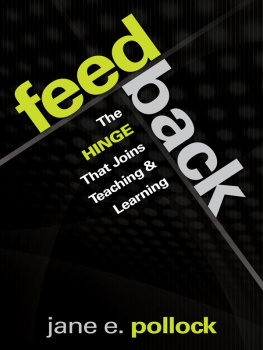
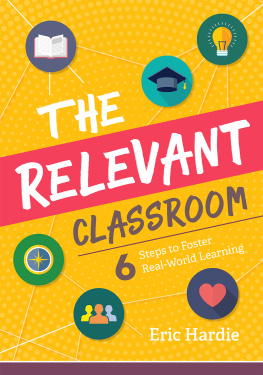
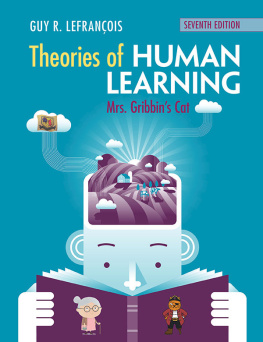
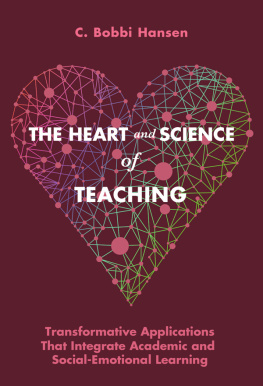
 The paper used in this publication meets the minimum requirements of American National Standard for Information Sciences Permanence of Paper for Printed Library Materials, ANSI/NISO Z39.48-1992.
The paper used in this publication meets the minimum requirements of American National Standard for Information Sciences Permanence of Paper for Printed Library Materials, ANSI/NISO Z39.48-1992.